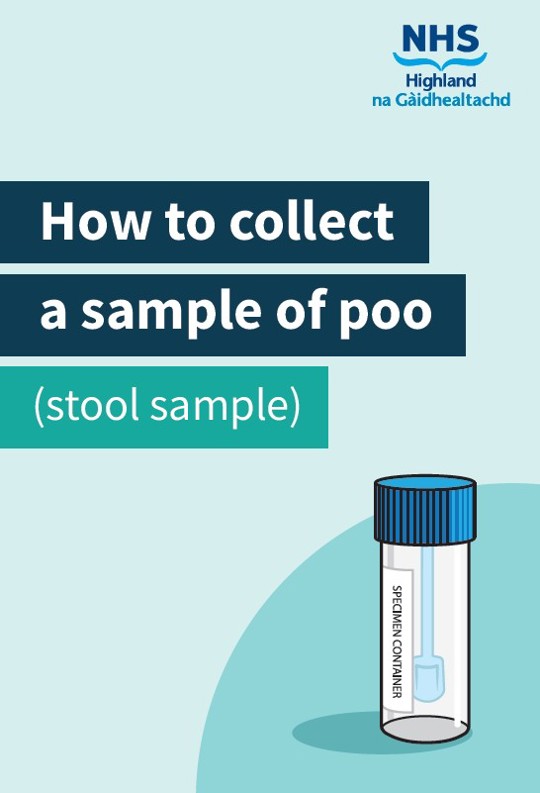How to collect a sample of poo (stool sample)
On this page
A doctor may ask you to collect a poo sample if you have symptoms that need checking.
Symptoms may include:
- diarrhoea
- blood in your poo
- stomach pain or discomfort
Read information from this page in pdf format instead (pdf, October 2025).

Prepare the container
You’ll be given a small plastic container to put your poo sample in. Write your name, date of birth and the date on the label on the container.

Collect a poo sample
If you need to pee, do this before you collect your poo sample, so there’s no pee mixed with the poo.
Put something in the toilet to catch the poo, such as a clean disposable container like an ice cream tub, or spread newspaper or clingfilm (plastic wrap) over the rim of the toilet.

Do a poo. Make sure it does not touch the inside of the toilet, or the water.

Use a disposable spoon to put some poo in the container - sometimes the container comes with a spoon. Include any poo that’s watery or has blood or slime in it.

Fill the container about 1/3 full with poo, then screw the lid shut.

Flush the rest of the poo down the toilet. Put everything you’ve used to collect the poo in a plastic bag, tie it up and put it in the bin.

Wash your hands with soap and warm running water.

Handing in your poo sample
The doctor will tell you when and how to return your poo sample. They’ll usually ask you to hand it in or post it in a prepaid envelope as soon as possible. It’s important your poo sample is tested as soon as possible after you do it.
If you cannot take your poo sample in or post it within 24 hours, talk to your doctor so they can tell you what to do.

Microbiology laboratory
-
Microbiology laboratory
Including toxoplasmosis, Lyme disease and tick-borne infections, and a culture section.
-
Lyme disease and tick-borne infections
Scottish Lyme Disease and Tick-borne infections Reference Laboratory (SLDTRL).
-
Toxoplasmosis
Scottish Toxoplasma Reference Laboratory (STRL).
-
Culture section
The culture section provides a comprehensive diagnostic bacteriology service.
-
How to collect a sample of poo (stool sample)
A doctor may ask you to collect a poo sample if you have symptoms that need checking.
